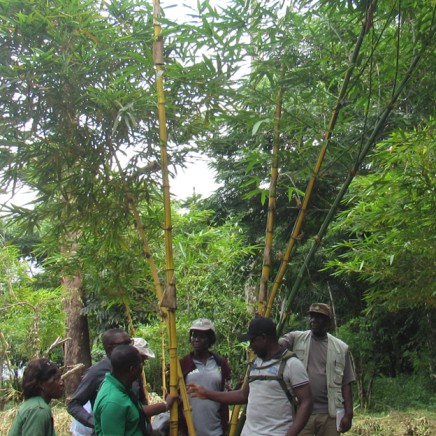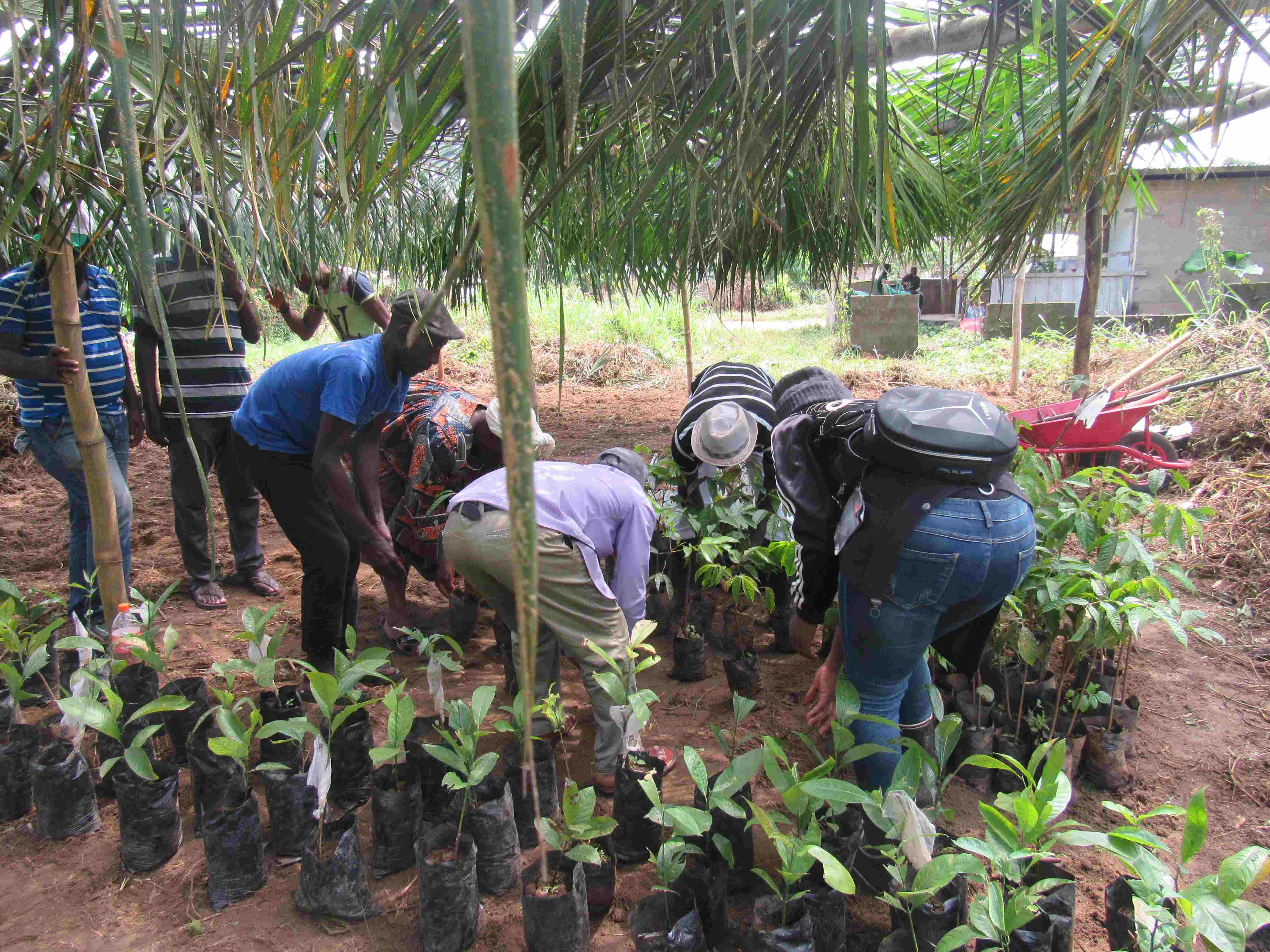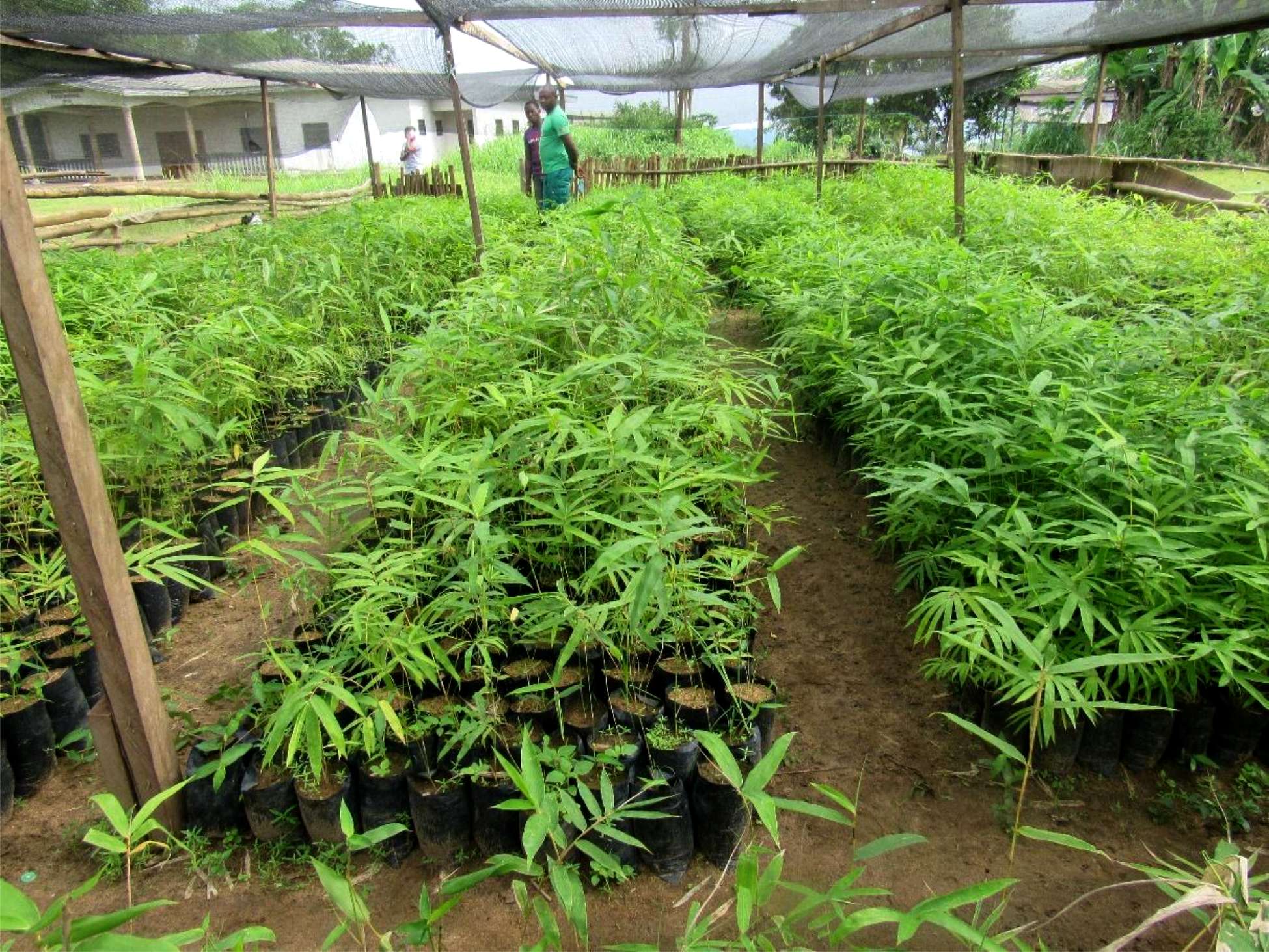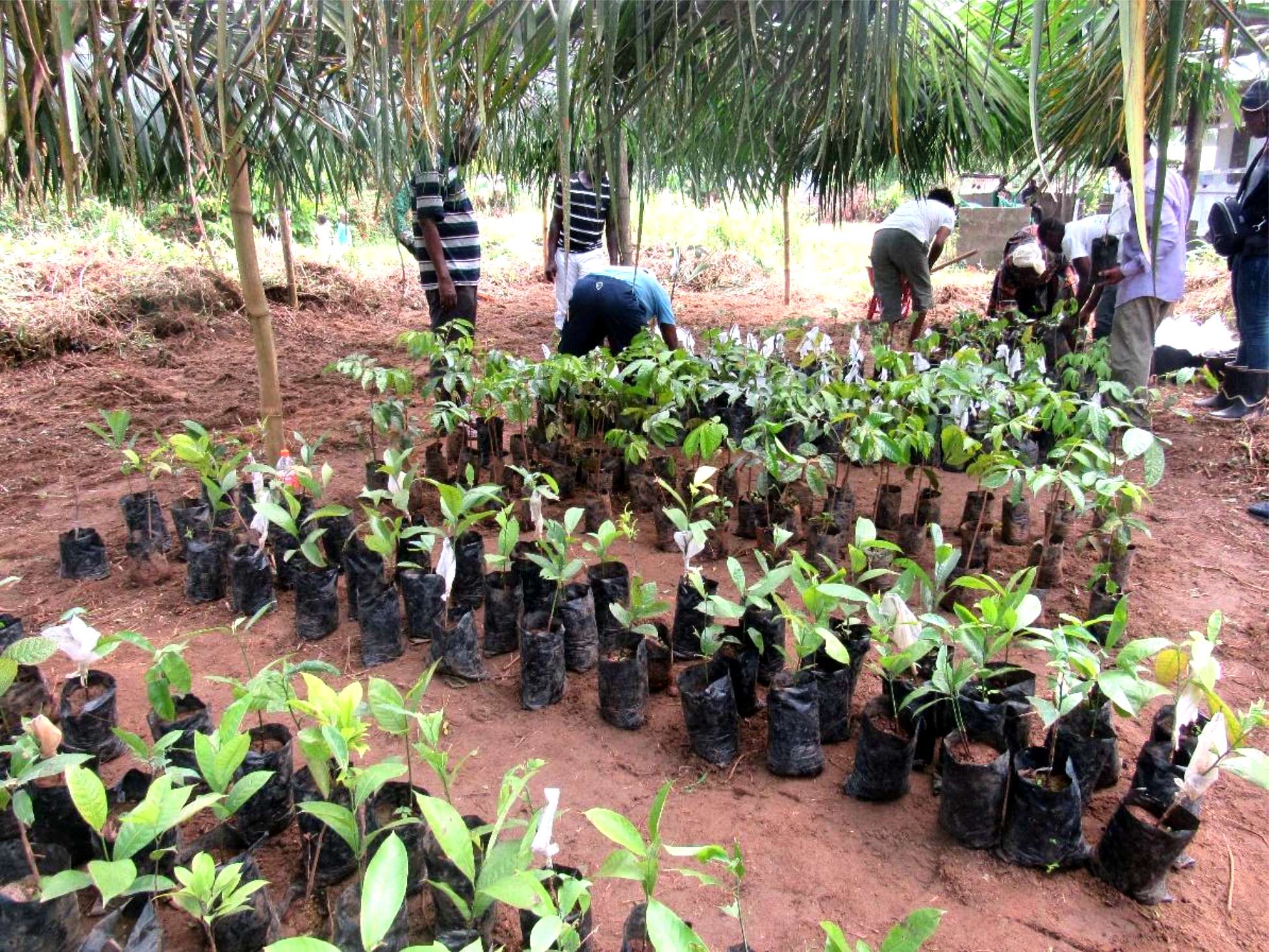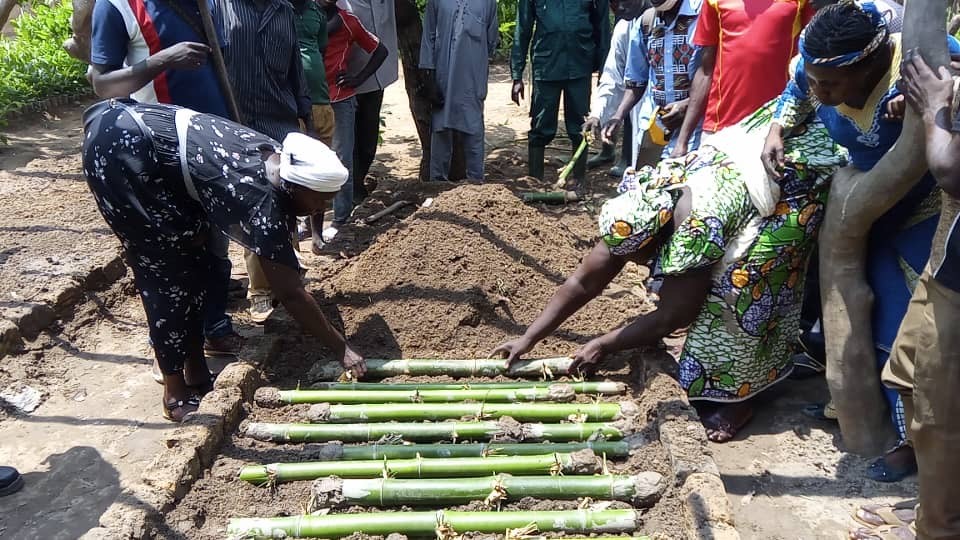TRI’s project in Cameroon is working to support the implementation and scaling-up of FLR in Cameroon to facilitate biodiversity conservation, sustainable land management, climate resilience and improved community livelihoods. An innovative focus of the project is on piloting and assessing the role that bamboo can play in supporting restoration efforts in Cameroon. Bamboo is indigenous to Cameroon and possesses qualities that potentially make it suitable for restoration of degraded lands in certain areas. Those qualities include an ability to grow on degraded soils and steep slopes where many plants cannot, and an extensive and fibrous root system that helps to stabilize loose soil and prevent erosion. In addition, bamboo is a fast-growing species that can be further utilized as a building material, food, or fuel source. The substitution of bamboo for fuelwood extracted from natural forest can help reduce pressures on natural resources and threatened biodiversity. Moreover, through value chain enhancements, bamboo can provide an important revenue source for communities.
Cameroon
Supporting landscape restoration and sustainable use of local plant species and tree products for biodiversity conservation, sustainable livelihoods and emissions reduction in Cameroon
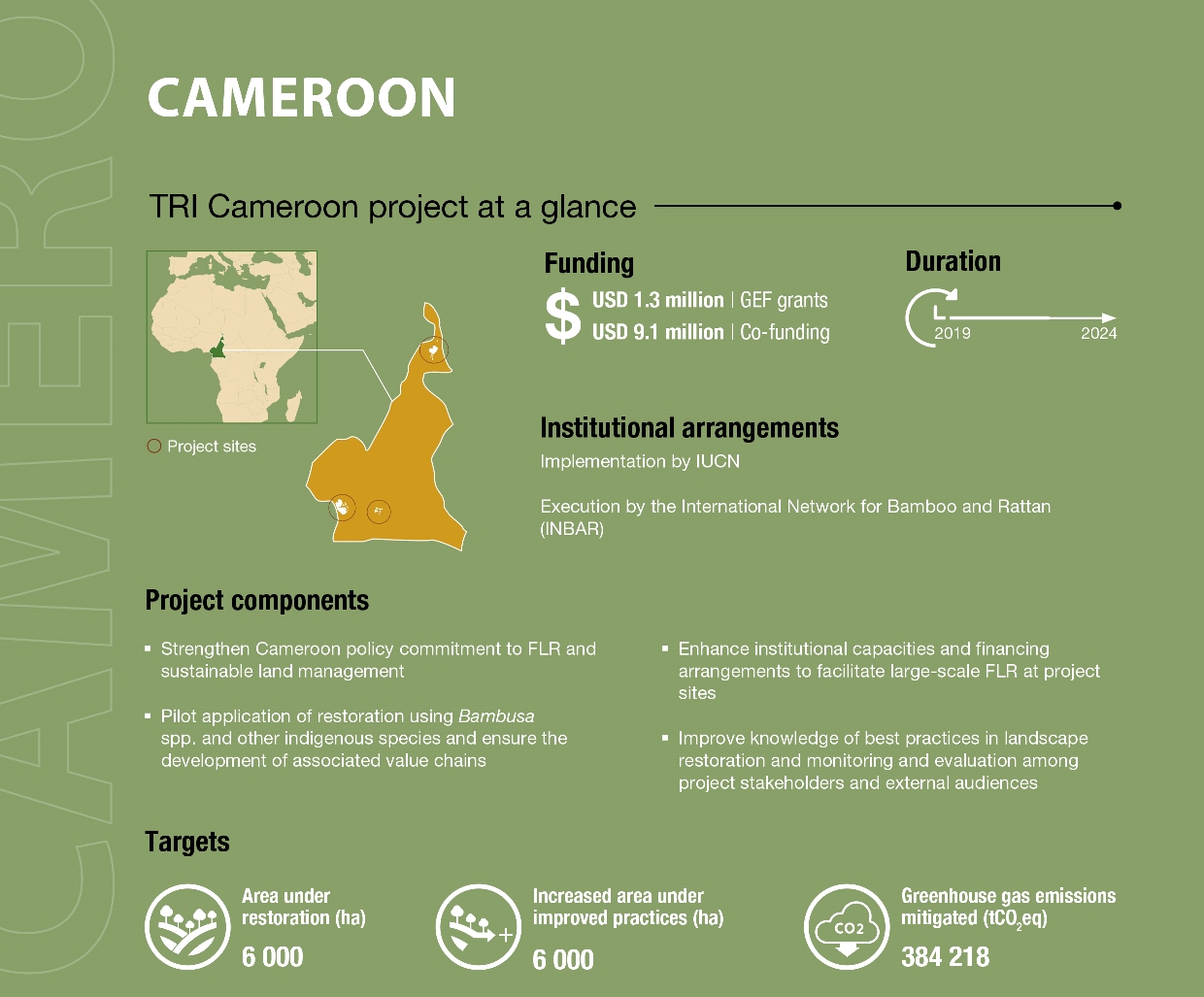
Related resources -
Flyer:
The Restoration Initiative (TRI) Project - Cameroon
Scientific note:
De la plantation d’arbres à la restauration des paysages forestiers: un changement de paradigme
Policy Note:
Manual:
News/stories:
Bamboo at the Heart of the World Environment Day in Cameroon
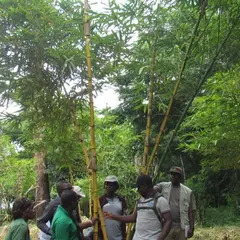
Artículo
|
04 Dic, 2023
Deforestation, climate change, land degradation, and inflation in food, oil, and fuel prices are just some of the many challenges affecting the Cameroonian economy.
The Restoration Initiative (TRI…
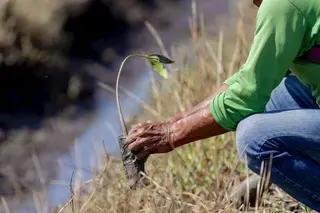
Artículo
|
05 Jun, 2024
Mediante herramientas metodológicas, datos y acciones concretas en los territorios, desde hace más de una década la UICN apalanca los esfuerzos de los países de la región hacia el cumplimiento de sus…

Noticias
|
15 Jun, 2023
El Servicio Nacional de Áreas Nacionales Protegidas de Perú (SERNANP) organizó un importante evento internacional por el décimo aniversario de la Lista Verde de la UICN, en donde países de América…
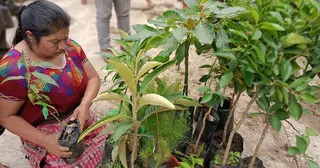
Artículo
|
29 Sep, 2022
En el marco del Programa Naturaleza 2030 de la UICN, la Oficina Regional para México, América Central y el Caribe (ORMACC) impulsa activamente entre sus Miembros la Plataforma de Contribuciones a la…
